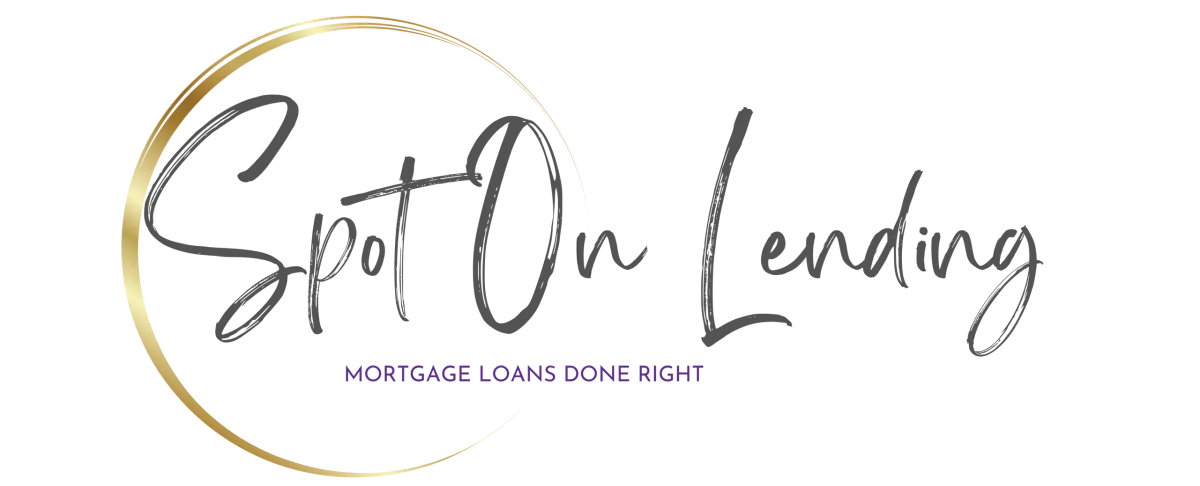Reverse Mortgage Programs - Turn Your Home Equity Into Tax-Free Cash
No Monthly Payments Required
Reverse mortgages for homeowners 62+ in California, Texas, Florida & Georgia
✅ $150M in funded loans ✅ 97% client satisfaction ✅ 21-day average closing

Key Benefits
🏠 Stay in Your Home - You retain ownership and can live there as long as you want
💰 No Monthly Payments - No mortgage payments required during your lifetime
💵 Tax-Free Proceeds - Reverse mortgage funds are generally not taxable income
🔄 Flexible Payment Options - Lump sum, monthly payments, or line of credit
🛡️ FHA Protection - Government-insured with built-in safeguards
Do You Qualify?
✓ Age 62 or older (all borrowers on title)
✓ Own your home as your primary residence
✓ Have sufficient equity in your home
✓ Meet financial assessment criteria
✓ Complete HUD counseling session
How Much Can You Receive?
- Here's some stuff
The Spot On Lending Process
Step 1: Free Consultation
Meet with Jennifer to discuss your goals and explore options
Step 2: HUD Counseling Session
You'll complete a required counseling session with an independent HUD-approved counselor to ensure you fully understand the loan terms and alternatives.
Step 3: Loan Application and Document Gathering
Step 4: Appraisal & Underwriting
A licensed appraiser will visit your home to determine its current market value. This typically takes 1-2 weeks and helps establish how much you can borrow.
Step 5: Closing
Once all documentation is complete, we finalize your loan and schedule closing. Most clients close within our 21-day average timeline.
Schedule Your Private In Home or ZOOM consultation with Jennifer below:
Forward Vs. Reverse Mortgages
How They Compare:
Traditional Mortgage
Reverse Mortgage
You Make Monthly Payments
Loan Balance Decreases
Build Equity Over Time
Income Verification Required
Any Qualifying Age(over 18)
No Monthly Payments Required or Lender pays you
Loan Balance May Increase
Access Existing Equity
No Income Requirements
Age 62+ Required
STILL NOT SURE?
Frequently Asked Questions
What is a Reverse Mortgage??
A reverse mortgage is a federally-insured loan designed specifically for homeowners 62 and older that allows you to access the equity you've built in your home without selling it or making monthly mortgage payments.
How It Works:
• Traditional mortgage: You make monthly payments to build equity over time
• Reverse mortgage: You receive payments from your built-up equity
• Your home remains yours - You keep the title and ownership
• No monthly mortgage payments required during your lifetime
• Loan is repaid only when you move, sell, or pass away
Government Protection & Oversight:
• FHA-insured through the Home Equity Conversion Mortgage (HECM) program
• Regulated by HUD with strict consumer protections
• Non-recourse loan - You or your heirs never owe more than the home's value
• Required counseling ensures you understand all options before proceedingWhat You Can Use the Money For:
• Eliminate existing mortgage payments
• Cover healthcare or long-term care expenses
• Home improvements and modifications for aging in place • Daily living expenses and bills
• Create a financial safety net for emergencies • Help family members with education or other needs
Your Responsibilities:
• Continue living in the home as your primary residence
• Pay property taxes and homeowners insurance • Maintain the home in good condition
• Meet with a HUD-approved counselor (we'll help you find one)
Common Misconceptions Cleared Up:
• "The bank owns my home" - FALSE. You retain full ownership
• "My heirs will lose the house" - FALSE. They can keep it by paying off the loan
• "I'll be forced to move" - FALSE. You can stay as long as you meet basic requirements
• "It's too expensive" - The costs are often financed into the loan
Is This Right for You? A reverse mortgage might be a good fit if you:
• Want to eliminate monthly mortgage payments
• Need additional income for retirement
• Plan to stay in your home long-term
• Have significant equity built up
• Want to access cash without selling
Next Steps:
The best way to know if a reverse mortgage fits your situation is through a personalized consultation. We'll review your specific circumstances, answer all your questions, and help you explore all your options - with no pressure or obligation.
Ready to learn more? Contact Jennifer directly: 📞 Call: 844-545-1665 📱 Text: 678-224-9952
With $150M in funded loans and 97% client satisfaction, Spot On Lending has helped hundreds of families make informed decisions about reverse mortgages.
How does filing a bankruptcy affect a reverse mortgage??
Exemptions in BankruptcyThe good news is that there may be no limit on the exemption for a homestead. That means that even if your home has a lot of equity, and you file bankruptcy, you won’t lose the home. Defaults and PaymentsMany reverse mortgages have provisions in them that make filing for bankruptcy a default. However, in reality, most lenders will not enforce this provision. If they did, they would need permission from a judge, most of whom are unlikely to ever enforce this kind of provision, as contracts that make bankruptcy a default in an agreement are usually held to be unenforceable.What banks will do is stop payments to you on the reverse mortgage when the bankruptcy is filed. However, you can file a motion and ask the court to allow the payments to resume. There is nothing inherent in bankruptcy law that prevents you from getting your reverse mortgage payments during the bankruptcy.
Who qualifies for a reverse mortgage?
To qualify, you must:
Be at least 62 years old
Own your home outright or have a low mortgage balance
Live in the home as your primary residence
Meet financial eligibility criteria
Complete HUD-approved counseling
What types of reverse mortgages does Spot On Lending offer?
We offer FHA-insured Home Equity Conversion Mortgages (HECMs), which are the most common type of reverse mortgage and provide the strongest consumer protections.
How much money can I receive?
The amount depends on:Your age (older borrowers typically qualify for more)Current interest ratesYour home's appraised valueFHA lending limits in your area
The amount of money you can borrow depends on how much home equity you have available. You typically cannot use more than 80% of your home's equity based on its appraised value. As of January 1, 2023, the maximum amount anyone can be paid from a reverse mortgage is $1,089,300. However, most people will be paid much less. Reverse Loan ratios are more lenient than a typical FHA loan. Feel Free to contact us today for information on what you will qualify for.

Do I still own my home?
Yes! You retain ownership and the title to your home. You're responsible for property taxes, homeowners insurance, and home maintenance.

When does the loan need to be repaid?
The loan becomes due when:You permanently move out of the homeYou sell the homeThe last borrower passes awayYou fail to meet loan obligations (taxes, insurance, maintenance)

What are the payment options?
Lump sum: Receive all proceeds at closing
Monthly payments: Fixed monthly payments for life or a set period
Line of credit: Access funds as needed
Combination: Mix of the above options

How quickly can Spot On Lending close a reverse mortgage?
With our streamlined process and 97% client satisfaction rate, we typically close reverse mortgages within our average 21-day timeline, depending on documentation and appraisal completion.

Are there any fees involved?
Yes, typical fees include:Origination feeMortgage insurance premiumAppraisal feeClosing costs However, these can often be financed into the loan.

What states does Spot On Lending serve for reverse mortgages?
We're licensed to provide reverse mortgage loans in California, Texas, Florida, and Georgia.

Will this affect my Social Security or Medicare benefits?
Generally, reverse mortgage proceeds don't affect Social Security or Medicare benefits. However, they may impact need-based programs like Medicaid or SSI.

Can I lose my home?
As long as you meet your obligations (paying property taxes, homeowners insurance, and maintaining the property), you cannot be forced to leave your home.

How is a Reverse Mortgage Different From a Forward MortgageForward vs. Reverse Mortgages:
Which is Right for You?If you’re not too familiar with the concept of “reverse” mortgages, you might be wondering how these loans differ from traditional or “forward” mortgages.While there are some similarities between the two types of loans, they’re actually quite different in ways that may be very beneficial to senior borrowers. Depending on your current situation, getting a reverse mortgage might be a better option for you than a conventional loan.“Reverse” MortgagesLike traditional loan products, a reverse mortgage loan is secured by a borrower’s home, but in other ways it is very different.The Federal Housing Administration’s Home Equity Conversion Mortgage (HECM) program requires borrowers to be at least 62 years of age and have a sufficient amount of equity in their homes.The HECM allows borrowers to tap into that equity in their home. No monthly mortgage payments are required and any existing mortgage loan is paid off using the proceeds from the reverse mortgage loan. The amount of money available depends on the borrower’s age, home value, and current interest rates.Borrowers can receive the money through monthly payments, a lump sum, through a line of credit, or some combination of these options. The payment form will depend on whether the borrower chooses a fixed or adjustable interest rate.Which is right for me?The reverse mortgage program typically has fewer requirements for prospective borrowers. Credit history and income generally aren’t as restrictive in the application process as they are for “forward” mortgages, which could be a big advantage for people on a fixed income.Another key difference has to do with loan repayment. Reverse mortgage borrowers are not required to make monthly mortgage payments on their home. However, the loan becomes due when the borrower passes away or leaves the home. At that point, the loan must be repaid in full.Unlike a traditional loan, reverse mortgages are non-recourse, meaning that a borrower will never owe more than the value of their home —a comforting aspect of the loan in times when home values have declined.While reverse mortgages offer these great features, this type of loan isn’t for everyone. In order to qualify, you must meet the age requirements and have a sufficient amount of equity in your home. Like with any mortgage, you’re required to keep the home in good condition and stay current on taxes and insurance.At the end of the day, if you’re looking to remain in your home and have access to the equity you’ve built in your home, a reverse mortgage may be a great option.e

Bankruptcy and Reverse Mortgages
Reverse Mortgages & Financial Challenges
Navigating Difficult Financial Situations
Can I get a reverse mortgage if I've filed for bankruptcy?
Yes, but timing matters. You must wait at least 2 years from the discharge date of a Chapter 7 bankruptcy, or 1 year from a Chapter 13 bankruptcy with court approval.
Required Documentation:
Bankruptcy discharge papers
Explanation letter detailing circumstances
Proof of financial recovery
Current credit report
What if I need to file bankruptcy after getting a reverse mortgage?
A reverse mortgage can actually help prevent bankruptcy by eliminating monthly mortgage payments. However, if bankruptcy becomes necessary, the reverse mortgage typically remains in place as long as you continue meeting loan obligations.
Foreclosure Prevention
A reverse mortgage can be an effective tool to stop foreclosure proceedings by:
Eliminating monthly mortgage payments
Providing cash to catch up on property taxes
Offering funds for necessary home repairs
Tax Liens and Judgments
Outstanding tax liens or judgments may need to be resolved before closing, but reverse mortgage proceeds can often be used to satisfy these obligations.
Contact Spot On Lending for a confidential consultation about your specific situation.
Don't worry, we can help!
TESTIMONIALS
What others are saying

"Loved everything so far"
"After my husband passed away, I was struggling to keep up with the mortgage payments on our family home in Marietta. Jennifer at Spot On Lending took the time to explain how a reverse mortgage could eliminate my monthly payments while allowing me to stay in the home we built together. The entire process was handled with such care and professionalism. We closed in just 18 days, and now I have the financial peace of mind to enjoy time with my grandchildren without worrying about house payments."
- Patricia M., Marietta, GA


"My life changed forever"
"I was hesitant about a reverse mortgage until I spoke with Jennifer at Spot On Lending. She explained everything clearly and never pressured me. The HUD counseling helped me feel confident in my decision. Now I have a line of credit available whenever I need it, and I'm still living comfortably in my Corona Del Mar home of 30 years. The whole process took just 20 days!"
- Robert T., Corona Del Mar, CA


"Highly recommend this"
"After my wife's medical expenses, we were struggling financially but didn't want to sell our family home in Texas. Jennifer showed us how a reverse mortgage could provide the monthly income we needed. Her team was professional throughout the entire process, and we closed right on schedule. It's given us the financial breathing room to focus on what matters most - family."
- James & Linda K., Dallas, TX

OTHER IMPORTANT LICENSING AND DISCLOSURE INFORMATION
*Borrowers must maintain property as primary residence and remain current on property taxes, insurance and associated property charges.
This material has not been reviewed, approved, or issued by HUD, FHA, or any government agency. The company is not affiliated with or acting on behalf of or at the direction of HUD/FHA or and other government agency. *Borrowers who elect a fixed rate loan will receive a single disbursement lump sum payment. Other payment options are available only for adjustable rate mortgagesThis material is not from HUD or FHA, nor was this approved, endorsed by, or on behalf of any Government Agency. . All Rights Reserved. Some loan products may not be available in all states. Terms, rates, and fees subject to change. Please speak with one of our licensed Spot On Lending loan originators for more detail. Reverse mortgage borrowers must maintain the property and keep current property taxes, homeowner's insurance and HOA dues. This material is not from HUD or FHA, nor was this approved, endorsed by, or on behalf of any Government Agency. The contents herein are not an approval or commitment to lend. All information and content is subject to change without notice. Individuals seeking a Home Equity Conversion Mortgage (HECM) should consult with their counsel and accountant for additional information in addition to participating in mandatory HECM counseling. Borrower and property information may cause program ineligibility and a reverse mortgage may not be the right financing vehicle for all applicants. Consult program guidelines for additional information.
About Us
Established in 2018
We have been helping customers afford the home of their dreams for many years and we love what we do.
Spot On Lending is an Equal Housing Opportunity Lender and complies with applicable laws and regulations.
Licensed and Serving Across 4 States:
California NMLS# 02066654 | 60DBO-154093
Georgia & Texas NMLS#1767407
Florida NMLS#MBR5826
Contact Us
Main Office:
5193 Groovers Landing Rd SE
Acworth, GA 30101
California Office:
1968 S. Coast Hwy #4100
Laguna Beach, CA 92651
Disclaimers
Serving Across 4 States:
California (Orange County, Laguna Beach)
Texas (Dallas Metro Area)
Florida (Tampa Bay Area)
Georgia (Atlanta Metro Area)
& Especially These Cities:
Resources

Spot On Lending (“Inc.”), is an Equal Housing Opportunity Lender.
By submitting your information above you agree to be contacted by our team via phone, SMS, or email. SMS message and data rates may apply. Message frequency varies. Reply to any message received with HELP for help or STOP to opt out. For help call us toll free: 1-844-545-1665..






